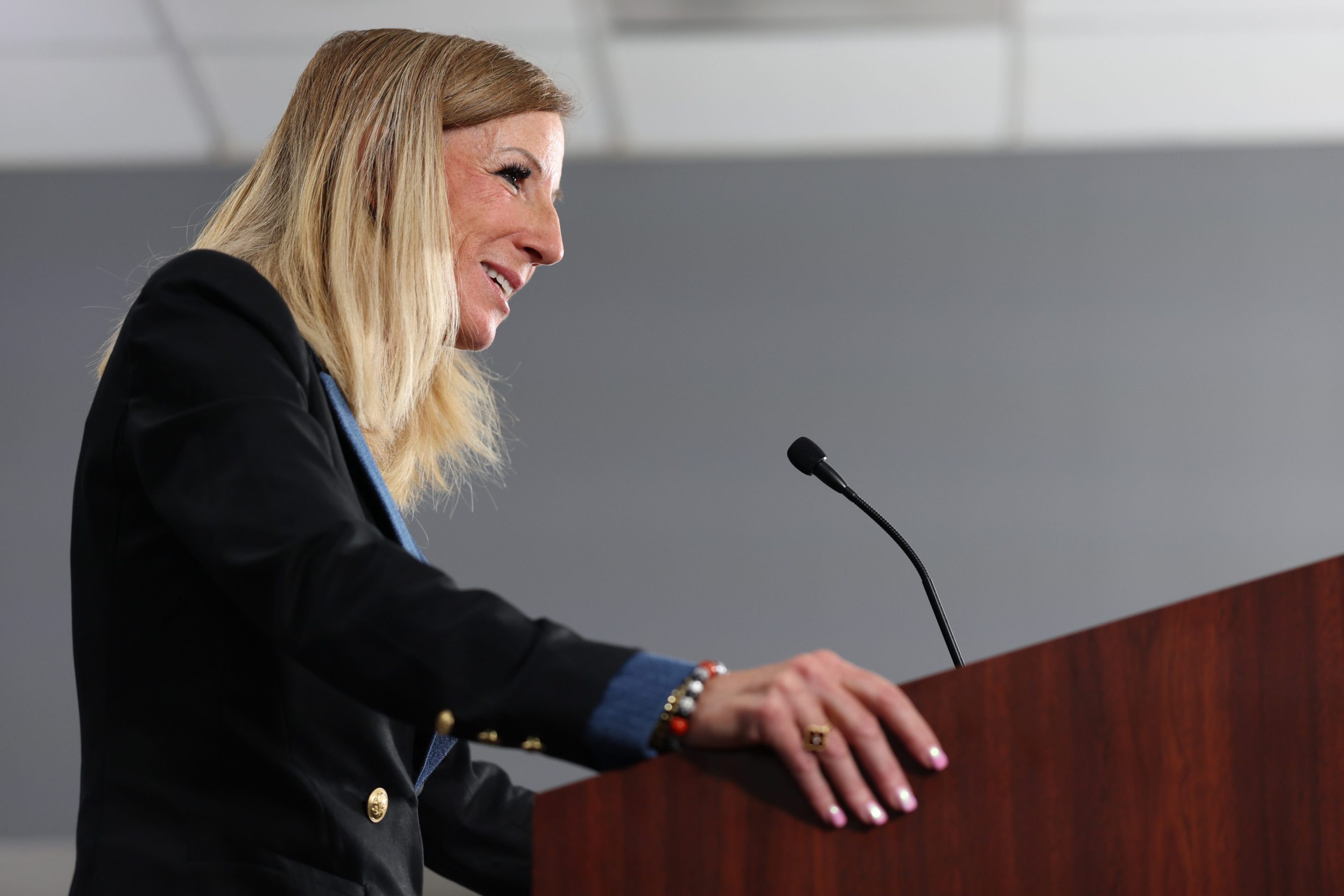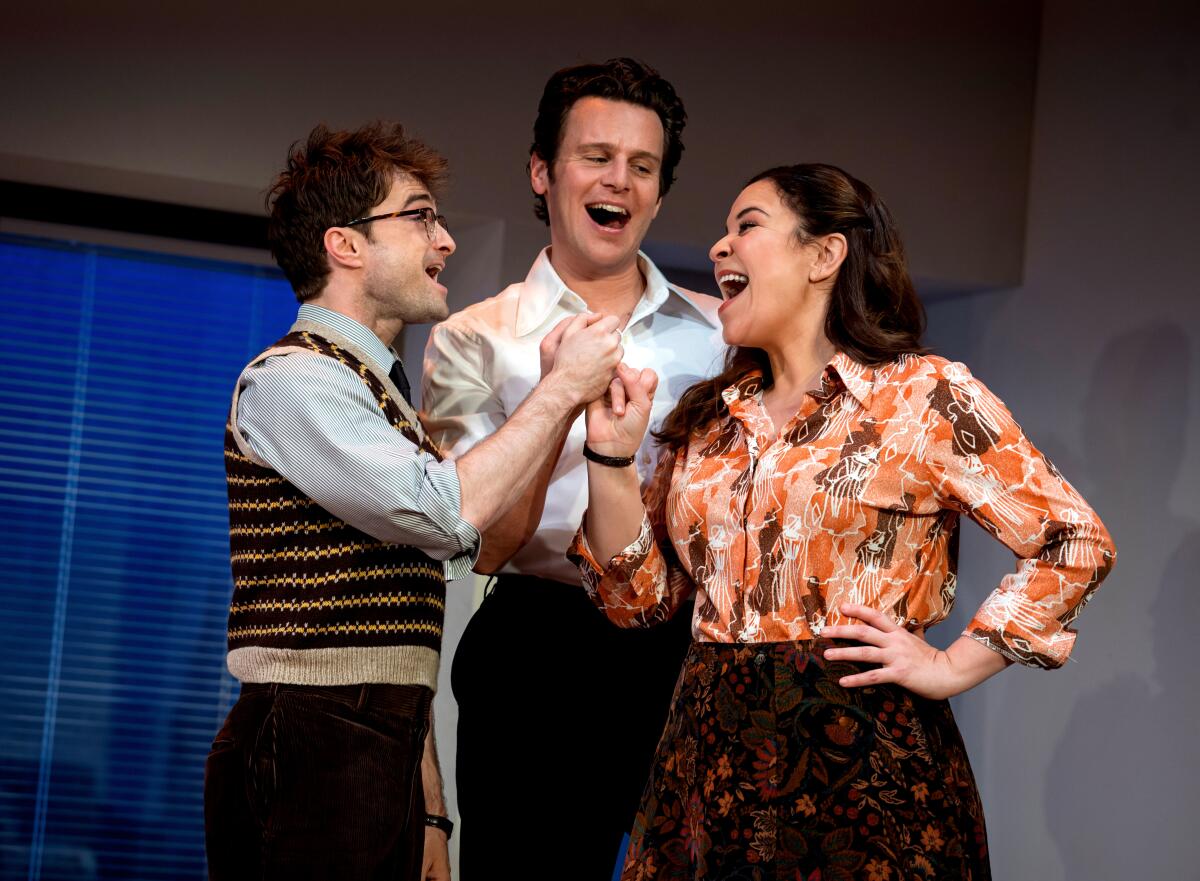LAS VEGAS — An Aces game overloads the senses well before the game itself begins. The national anthem features indoor fireworks. Seats rumble from the bass of the speakers. There’s so much to look at, too much to look at, enough that you should brace yourself. When the starting lineups were announced on Friday night, the first night of the WNBA Finals, a warning showed up on the Jumbotron: The following presentation incorporates theatrical haze & special effects.
We’d just emerged from the theatrical haze of Cathy Engelbert’s pre-Finals press conference, a humdrum “state of the league” address most years, but now the buzziest event of the week. It would be the WNBA commissioner’s first public appearance since she was blasted by Napheesa Collier in a prepared statement the Lynx star read to reporters at an end-of-season press conference. Collier bemoaned that the best players and fans in the world were saddled with “the worst leadership in the world.” She criticized the league’s “lack of accountability” on officiating and player pay. She also implied that Engelbert herself was ill-suited to the job, recounting a conversation they’d had this winter where Engelbert came off smug and uncaring.
These days, it’s not unlike the WNBA to be swirled up in public controversy. But with collective bargaining in the backdrop, this was a different kind of crisis, leaving exposed a fissure between league leadership and players. From Tuesday to Friday, the women’s basketball world wondered feverishly what was going on in the league office, whether they’d emerge with some PR strategy. It seemed like it was all hands on deck over there. The schedule for the end-of-season awards circulated weeks ago said the All-Defensive teams would be named on Oct. 1; the day came and went with no announcement. Admittedly, the schedule warned that all dates were subject to change, but some truthers wondered if the delay was an act of revenge or a way around awkwardness: Whenever the list comes out, Collier is sure to be on it.
Everyone on the women’s basketball beat had spent the week fishing through the same bucket of words: embroiled in controversy, embattled, under fire, facing backlash. The typical “Who ya got?” pregame pleasantries among reporters gave way to pre-presser hype. Cathy Engelbert vs. every professional women’s basketball player and fan: Who ya got? The two hours of basketball to follow were something like postgame entertainment.
The press conference proved to be the tougher ticket. An hour before Game 1 tipped off, the assembled media packed into a stuffy conference room. By 3:56 p.m., it was standing room only—maybe the first time that’s happened at a WNBA presser. Stragglers too careless (or in my case, too Midwestern) to think of lining up for good seats ahead of time fought for patches of carpet on the perimeter, all of us sweating away our dignity. Only when I turned to dislodge some camera equipment from my ribcage did I notice the person squashed between me and the back wall was Rebecca Lobo. “I don’t think last year had this level of attendance, did it?” her broadcast partner Ryan Ruocco quipped next to her, his voice muffled behind a barricade of shoulders.
It did not have this level of attendance, no, and the presence of ESPN personalities at one of these was itself unusual, proof of the moment’s magnitude. Familiar WNBA press conference rituals kept us grounded: The mic check is long and thorough, Engelbert delivers an opening statement, the AP’s Doug Feinberg gets the first question. Perhaps to Engelbert’s relief his two-parter was about CBA negotiations and the potential Connecticut Sun sale, two of the league’s slower-burning controversies. Then the real grilling started, crisp and enunciated. ESPN’s NBA Today host Malika Andrews dove in with everyone’s question. “I just wanted to get some clarity on some of the specifics that Napheesa Collier said about your conversation that you had that was previously private,” Andrews said. “Did you, in fact, say that ‘Players should be on their knees thanking their lucky stars for the rights deal that I got them?’”
With a smile, Engelbert began the strange balancing act she’d perform on the podium for the next half hour. It was clear she wanted to deny saying any of these things but knew she couldn’t explicitly call Collier a liar. To do that, she had to stay away from sentences with real subjects. “There’s a lot of inaccuracy out there through social media and all this reporting,” Engelbert said. Blame lay neither at her feet nor Collier’s, but ours.
She went on to say that she’d been in touch with Collier, and the two of them planned to meet soon. But in the end, Andrews’s yes-or-no question did not beget a yes-or-no answer. “I think obviously a lot of reporting, a lot of inaccuracy about what I said or what I didn’t say. And I will tell you I highly respect the players. There’s a lot of emotion and passion going on right now because we’re in collective bargaining, we’re in the WNBA Finals. So I’ll leave it there.” She added that this was personally disheartening for her. “I’m a human, too,” she said, before she walked into an unfortunate soundbite. “I have a family.”
Only near the end of the press conference did she have Collier’s quotes read back to her again, this time by Front Office Sports’ Annie Costabile: “Did you, in fact, say that Caitlin Clark should be grateful she makes $16 million off the court because without the platform that the WNBA gives her, she wouldn't make anything?” Frustrated, Engelbert finally lapsed into frankness. “Obviously, I did not make those comments,” Engelbert began. (Her being asked about them in a press conference attended by dozens of people suggested this was not actually that obvious.) She ended her answer on a softer note, trying again to muddle things. “But yeah, as I said, there’s a lot of inaccuracies reported out there, and I certainly did not say that.”
If Engelbert had simply called Collier a liar, it might not have made much difference. The next day, Collier reportedly cancelled the planned meeting with Engelbert. The press conference answers, laden with implication, had “pretty much pushed the relationship beyond repair,” a source told ESPN. Subtlety, evasiveness—they don't play well in Vegas. Collier had seen through Engelbert's act, waved away the haze until the picture was clear.






